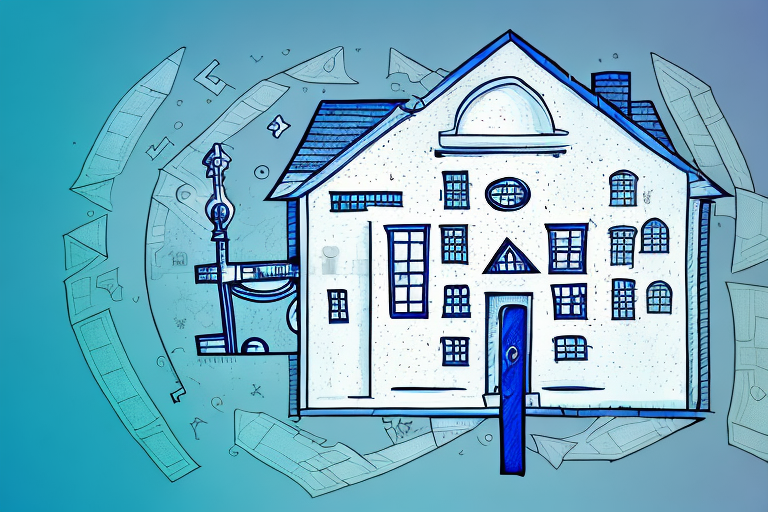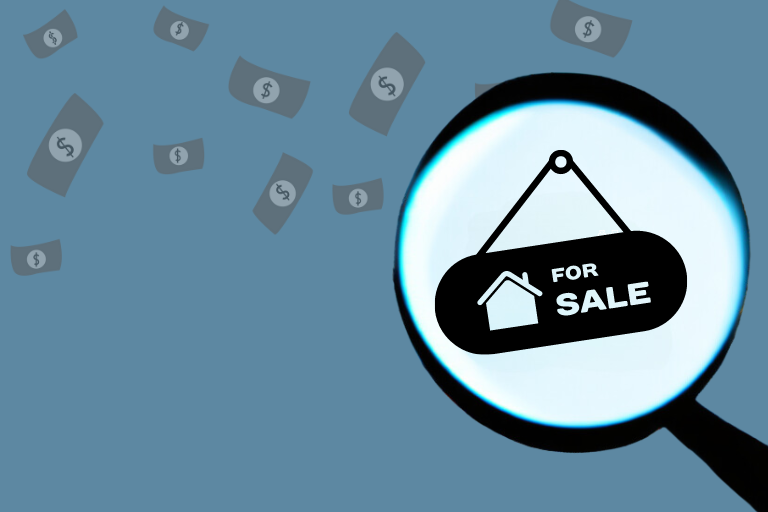When it comes to buying a property, it’s easy to get swept up in the excitement of finding the perfect home. However, there’s more to consider than just the purchase price. Hidden costs can sneak up on buyers, and if they’re not taken into account, they can have a significant impact on the overall cost of the property. In this article, we’ll explore hidden costs in property buying, the risks of overlooking them, and strategies for avoiding this common mistake.
“Understanding Hidden Costs in Property Buying”
Before we delve into the specifics of hidden costs, let’s establish what we mean by the term. Essentially, hidden costs are any expenses associated with buying a property beyond the purchase price. These expenses may include legal fees, appraisal fees, property taxes, insurance, maintenance and repairs, and more. Unfortunately, hidden costs are easily overlooked by buyers, who may assume that the purchase price is the only cost they need to consider when buying a property.
“What are Hidden Costs?”
Hidden costs are often expenses that are associated with closing and ownership costs. They vary depending on the location, property, market, and the homeowner’s situation.
One common hidden cost is property taxes. Depending on where you live, property taxes can be a significant expense. It’s important to research the property taxes in the area you’re considering buying in and factor them into your budget.
Another hidden cost to consider is homeowner’s insurance. While it’s not legally required, most mortgage lenders will require you to have homeowner’s insurance. This can be a significant expense, especially if you live in an area prone to natural disasters like hurricanes or earthquakes.
Additionally, maintenance and repair costs can add up quickly. It’s important to have a home inspection done before purchasing a property to identify any potential issues. Even if the inspection comes back clean, it’s a good idea to set aside some money for unexpected repairs or maintenance.
“Why are Hidden Costs Often Overlooked?”
There are a few reasons why hidden costs can slip under a buyer’s radar. First, many buyers aren’t aware of all the expenses associated with the purchase and ownership of a property. Additionally, hidden costs aren’t always communicated clearly or transparently by sellers or their agents. Finally, buyers are often focused on finding their dream home and may overlook the small details that can end up making a big difference in the long run.
It’s important to do your research and be aware of all potential hidden costs before making a purchase. This will help you create a realistic budget and avoid any unpleasant surprises down the road.
“Common Hidden Costs in Property Purchases”
Buying a property is an exciting and rewarding experience, but it can also be a costly one. While most buyers are aware of the upfront expenses like down payments and closing costs, there are several hidden costs that can catch them off guard. Let’s take a closer look at some of the most common hidden costs that buyers may encounter when purchasing a property.
“Inspection and Appraisal Fees”
When buying a property, it’s crucial to have it inspected and appraised to ensure that it’s in good condition and that the price is fair. However, these services come at an additional cost that buyers need to consider. Inspection fees can range from a few hundred to a few thousand dollars depending on the size and complexity of the property. The appraisal fee is typically a few hundred dollars and is paid to the appraiser who determines the fair market value of the property.
“Legal and Closing Costs”
Buyers are often required to pay a variety of legal and closing costs associated with the property purchase. These costs may include attorney fees, title search, title insurance premiums, and more. Attorney fees can range from a few hundred to a few thousand dollars depending on the complexity of the transaction. Title search fees are paid to the title company to ensure that there are no liens or other issues with the property’s title. Title insurance premiums protect the buyer in case there are any issues with the title in the future.
“Property Taxes and Insurance”
Property taxes and insurance expenses can add up quickly and can often be overlooked by buyers. It’s important to research the property tax rate for the area and estimate the cost of insurance when budgeting for the purchase of a property. Property taxes are typically based on the assessed value of the property and can vary widely depending on the area. Insurance premiums are based on several factors, including the location of the property, the age of the property, and the type of coverage selected.
“Maintenance and Repair Expenses”
Homeownership comes with regular maintenance and repair costs that can add up to significant amounts over time. Buyers need to consider ongoing expenses like landscaping, cleaning, and general upkeep when budgeting for their property purchase. Depending on the age and condition of the property, maintenance and repair costs can range from a few hundred to several thousand dollars per year.
“Homeowners Association Fees”
Many properties are part of a homeowners association (HOA). HOA fees are paid monthly, quarterly or yearly to cover expenses including shared spaces like gyms, pools, and other amenities. The cost of HOA fees can vary widely depending on the location and amenities offered. It’s important to research the HOA fees for the property before making an offer.
In conclusion, it’s important for buyers to be aware of all the hidden costs associated with purchasing a property. By doing their research and budgeting accordingly, buyers can avoid any surprises and enjoy their new home with peace of mind.
“The Impact of Overlooking Hidden Costs”
Overlooking hidden costs can have severe consequences on the overall cost of homeownership. Let’s explore these consequences in more detail.
“Financial Strain and Unexpected Expenses”
When purchasing a home, it’s important to consider all of the costs associated with homeownership, not just the purchase price. Overlooking hidden costs can result in financial strain and unexpected expenses. For example, buyers may not consider the cost of repairs or upgrades that may be necessary after moving in. These costs can add up quickly and put a strain on an already tight budget.
Another hidden cost that buyers may overlook is the cost of utilities. If the home is larger than their previous residence, the cost of heating and cooling the home may be significantly higher. Additionally, buyers may not consider the cost of water, electricity, and other utilities that they will need to pay for each month.
“Reduced Return on Investment”
Overlooking hidden costs can also reduce the return on investment for a property. Buyers who are unaware of the potential expenses associated with a property may overpay, resulting in a lower return on investment down the line. For example, if a buyer purchases a fixer-upper without considering the cost of renovations, they may end up spending more money on repairs than they will ever recoup when they sell the property.
Additionally, buyers who overlook hidden costs may not be able to sell their property for as much as they had hoped. If they need to make repairs or upgrades before selling, these costs will eat into their profits. Similarly, if they need to sell quickly, they may have to accept a lower offer than they would have otherwise.
“Potential Legal Issues”
If buyers don’t go through the proper legal channels and pay the right fees, they may face legal issues down the line if they have to sell the property or if it is foreclosed upon. For example, if a buyer fails to pay property taxes, they may face fines or even lose their home. Similarly, if they fail to obtain the proper permits for renovations, they may face fines or have to undo the work they’ve done.
It’s important for buyers to work with a real estate agent and a lawyer to ensure that they are aware of all the costs associated with purchasing a home. By taking the time to consider all of the hidden costs, buyers can avoid financial strain, reduce their risk of legal issues, and ensure a higher return on investment in the long run.
“Strategies to Avoid Overlooking Hidden Costs”
Buying a property can be an exciting and rewarding experience, but it can also be a costly one if buyers overlook hidden expenses. Hidden costs are expenses that are not immediately apparent, such as property taxes, maintenance fees, and repairs. These costs can add up quickly and cause financial strain if buyers are not prepared.
Now that we know the risks associated with overlooking hidden costs when buying a property, let’s explore some strategies for avoiding this common mistake.
“Conduct Thorough Research”
One of the best ways to avoid hidden costs is to conduct thorough research before making a purchase. Buyers should research the area they are buying in and the property they are considering. This research should include information on property taxes, utility costs, and any other expenses that may be associated with the property. Buyers should also speak with local experts, such as real estate agents and attorneys, to get a better understanding of the potential expenses they may encounter.
By conducting thorough research, buyers can ensure that they are well-informed about the property they are buying and can avoid any surprises down the road.
“Create a Comprehensive Budget”
When creating a budget for the property purchase, buyers should include all of the potential hidden costs they may encounter. This budget should include all initial costs associated with the purchase, such as closing costs and down payments, as well as ongoing expenses once they have ownership, such as property taxes and maintenance fees.
By creating a comprehensive budget, buyers can ensure that they have a clear understanding of the total cost of the property and can avoid any unexpected expenses that may arise.
“Seek Professional Assistance”
Buying a property can be a complex process, and buyers may benefit from seeking the assistance of a qualified real estate agent or attorney. These professionals can help buyers navigate the buying process and identify any potential hidden costs. They have a wealth of experience and knowledge of the industry, and they can ensure that buyers are well-equipped to make informed decisions when buying a property.
By seeking professional assistance, buyers can ensure that they have a clear understanding of the buying process and can avoid any costly mistakes.
“Negotiate with Sellers”
Finally, buyers may be able to negotiate with sellers to cover some of the costs associated with buying a property. For example, they may ask the seller to pay for inspection or appraisal fees or to include a home warranty in the sale. These negotiations can help buyers save money when buying a property.
By negotiating with sellers, buyers can ensure that they are getting the best possible deal and can avoid any unnecessary expenses.
Overall, by conducting thorough research, creating a comprehensive budget, seeking professional assistance, and negotiating with sellers, buyers can avoid overlooking hidden costs when buying a property. These strategies can help ensure that buyers are well-informed and well-prepared for the buying process, and can avoid any costly surprises down the road.
“Conclusion”
Hidden costs can be a significant factor in the overall cost of buying a property. Buyers who overlook these costs may face financial strain, reduced return on investment, and potential legal issues. However, buyers can avoid this mistake by conducting thorough research, creating a comprehensive budget, seeking professional assistance, and negotiating with sellers. By taking these steps, buyers can make informed decisions and ensure that they are well-equipped to handle the potential hidden costs associated with buying a property.







